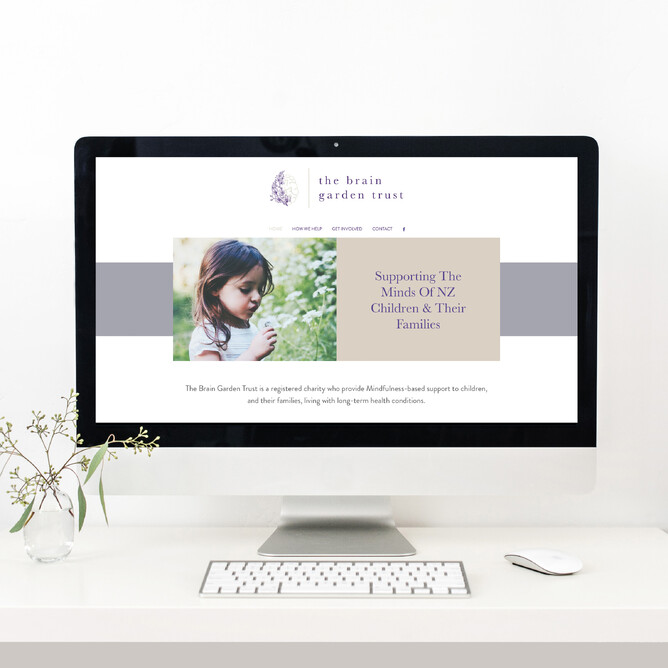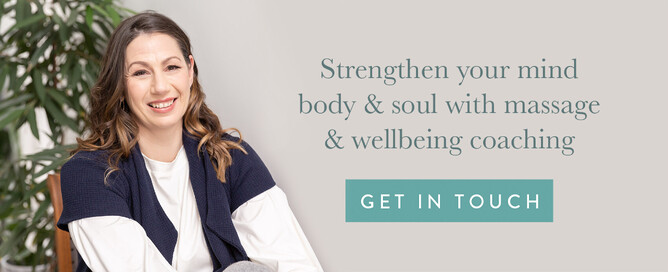My story as a parent of a neurodivergent daughter and heart-kid son
My daughter was recently diagnosed with autism, and I found out my son had a heart condition when I was 18 weeks pregnant with him.
It’s not my place to impart too much of my kids’ stories – they are personal to them. But...
...I want to share with you my thoughts and insights, challenges and triumphs, to validate the range of emotions you are going through and help you see you are doing a brilliant job.
Our heart-child boy and navigating “mum guilt”.
Being a heart-child myself, I had lots of scans during pregnancy.
I found out my son had a heart condition when I was 18 weeks’ pregnant. I remember the scans looked familiar to me – which immediately alerted me to something not being right as if it looked normal to me, a heart-child, it clearly wasn’t!
For me, there was a huge amount of guilt. Even though I lived – and still live – a full life, there was a lot of guilt around what having a heart condition would mean for him.
I wondered if he would miss out on a “normal” childhood and whether he’d be well enough to experience the things other kids do.
My pregnancy was stressful as we weren’t sure how serious it was going to be. He was born premature at 34 weeks. Before the birth, I was told I wouldn’t be allowed to hold him – but I was lucky enough to hold him briefly before he was moved to the neonatal ward.
I couldn’t go with him though, as I was haemorrhaging.
I remember being worried for his future and what the impact of this condition would be.
The relief of the same medical team.
I was incredibly lucky because my son had the same medical team as me – I knew the surgeons and specialists. I knew what was going on medically and I probably got more information than the average person as I knew the right questions to ask.
I still get haunted by those early days. He was a baby who loved his milk. But the morning of his surgery, I couldn’t feed him.
Holding him for four hours – listening to him crying – and being unable to feed him was heartbreaking.
I remember them taking him to theatre. I was allowed to go in with him. I put him down on the operating table and kissed him, not knowing if he’d wake up.
We spent six hours waiting for the phone call to see whether they could restart his heart.
Seeing him afterwards, I was lucky because I knew what all the machines were. I knew how the hospital worked. I went into hospital mode, my health history was a plus because hospital was my safe space.
But I found it hard because I had a toddler who needed me. I was trying to care for a baby who was sick and a toddler.
My parents came down and I got an insight into what it was like for them raising a heart-child and seeing your child go through multiple surgeries.
Medically, the surgery was a success – they had fixed his heart. But sadly, he was left with post-traumatic stress and anxiety.
The mental health impact on relationships and the family unit.
No one was interested in the mental health side for a long time. That is why I started the Brain Garden Trust.
My charity was born from frustration. My son’s heart was theoretically fixed, yet no one was interested that he was traumatised and anxious. He was only ten months old, and this operation impacted him all the way through primary school and intermediate.
And even now – as a teenager – you can still see that anxiety. You want your child to be well and it's hard to see them suffer.
I've seen a lot of heart-child parents whose marriages have fallen apart. That's not the only reason why mine fell apart, but it's one of them. I was facing a lot of stress and I couldn’t work.
When I separated, I set up Emma-Kate Wellbeing because I needed the space and flexibility to go to my son’s hospital appointments and care for him when he was sick. He can’t go to school if he’s got a cold. So it was easier for me to be self-employed.
I’ve seen how having a high-health-needs child affects the whole family. It’s nobody’s fault your child is sick, but the loss of the village and support is painful.
Because I was spending more time with him, his siblings thought I loved him more.
It impacts the wider family in many ways. And I found it hard to get support for us all.
Once you’re out of hospital, you lose that support structure. Not everybody has that wraparound community anymore where family come and stay and help.
Our neurodivergent girl.
My daughter has recently been diagnosed with autism. She’s good at masking. She can be social but it drains her. She becomes quite fatigued and has panic attacks. It took us a while to cotton on to this.
At primary school, she missed days as she was too tired. The open classrooms didn't work – they cater for neurotypical kids.
But I got labelled a molly-coddling parent and told nothing was wrong and she was perfectly fine at school. She missed a lot of school at primary and intermediate level.
I pushed for her to be diagnosed and after that we got extra support which has been good. As a parent, it’s tough when you see your child's struggling but others might not. Kids are supposed to be at school, but if school’s not working for them, they don’t go. Maybe that’s because it triggers panic attacks, or they're fatigued, but don't necessarily have the words to explain how they feel.
The difference between unhelpful labels and getting a diagnosis.
It’s difficult when the schools label your kids as “naughty” or say things like, “She's fine when she's with me. It's just you.” As a parent, you get anxious because you feel you’re not being seen – you feel invalidated.
You want the best for your child. It can be hard when you are constantly searching for the next piece of information – the next psychologist, the next doctor, the next supplement, the next something that will make more sense.
Society is in a better place now as we’re starting to talk more openly about neurodiversity and more people – especially girls and women who have become so used to masking – are starting to recognise they are neurodivergent.
Doctors are becoming more aware. The same goes for anxiety. But we’ve still got a long way to go. The stress of the unknown, of what is the best thing to do is hard for families. You start judging your abilities as a parent and the choices you make – should I be able to get my daughter to go to school? Should she even go to “mainstream” school at all?
The diagnosis relief.
A big weight has been lifted now there is a diagnosis. We have a plan with the school, we have a plan with a psychologist, and we have some breathing space to slowly re-engage her with learning.
It’s hard because she sees the world differently to a neurotypical kid and conventional schooling is built for neurotypical kids.
Most of the time we are trying to see her world through our eyes when it's completely different.
I felt guilty it took me so long to get the diagnosis for her. I guess there was a bit of burying my head in the sand.
We've now got a new school, new GP and new psychologists. It's nice to be felt and heard and not gaslit.
As a mum of a neurodivergent child, I’ve learnt that you need to persevere and connect with your maternal voice that's saying, “It's not right. There is something else going on here.” It can be exhausting to advocate for yourself – especially when doors are shut in your face. I think that's a lot of what parents are up against. They have no energy to advocate anymore.
How routines and boundaries can support us.
The Māori term for autism is Takiwātanga – my/his/her own time and space. I went to a Steiner school and this way of thinking follows the Steiner philosophy.
I recommend reading Growing into Autism by Sandra Thom-Jones – it’s so good and insightful. She talks about autism and how she wished she had known earlier that it’s good to set routines and boundaries and know it's okay that you have fatigue and it's a bit harder to have friends.
I've got mental health training and I found it frustrating because I help others but couldn't help my daughter. I now know it’s my job to be her mother. To sit with her and champion her.
I don’t need to be her coach or her therapist. She just needs me to be Mum.
I see with many of my clients their children are anxious, they're looking for that magic wand. And I see in my coaching role there isn't a magic wand, but there are consistent daily routines we can put in place that will make our lives easier.
And it means when we have dips, we don't go so far down and we don't have such big highs. Life’s more consistent.
Being neurodivergent is a superpower as long as you learn to harness it. Sure, there are some weaknesses. I've got brain hypoxia, so I’m not good on electronics for a long time, but I've worked out ways around it.
Moving from grief to acceptance.
I’ve grieved over what I thought my daughter’s life would be. But I’m learning to accept where she is and who she's is – exactly how she's meant to be.
And her living with autism, doesn't change how much I love her. I'm trying to work out how to make a world that wasn't built for her, be more inclusive and make it easier for her to walk into that world and come back out when she needs to.
It’s a label – and labels can be rigid and inflexible. But a label also serves a purpose. The reason I wanted to get a diagnosis for my daughter is so she can get access to more support at school. She doesn't have to do a whole day because that's too much. So the label is useful in that context. But we could use that label and it could be a reason for her to not do anything she doesn't want for the rest of her life.
We’ve just got the diagnosis and are trying to work with the school. It’s given us both some breathing space and acceptance that we are doing our best with the knowledge we have. And it's a new journey for us.
Paying the price for masking and “fitting in”.
My daughter can “mask it” and be sociable – but the problem with masking is she pays the price later.
She will become overwhelmed and need to go to bed for the rest of the day – or rest the next day – because she's done too much. On the outside, she looks okay and can function so people don't always understand.
She's bright, even though she's not attending much school, she's doing well academically but finds it hard to maintain friendships.
With mental health, if you’re too emotionally drained to do something, you may get labelled as lazy or we might put that label on ourselves.
But if we had a broken arm in a cast, it’s something others can see and more readily accept.
We’re getting better at it but it's also our own expectations and acceptance and whether we can be compassionate with ourselves. That knowledge that, “This is what I can do in this moment.”
It’s important to have these conversations so we realise we are not alone.
Parent anxiety.
After my daughter was diagnosed, the anxiety around what I should be doing and what I'm perceived to be doing by the outside world has softened. I’ve always been good at self-care. I take the dog for a walk every day. I make sure I have a good sleep. I try and eat reasonably healthily. I drink lots of herbal tea. I try and socialise. I love reading – I read a lot.
And sometimes if I've got something big on or my anxiety's flaring up, I will take time off work. It's making sure I do things that fill my tank – sometimes that’s simply going to the garden centre to buy a new plant or watering my plants.
I prefer softer things – my clothes and pyjamas need to be soft. And I’m trying to declutter the house because I feel better when I have less things. Because there's so much in my world I can't control, I try and find things I can control in a safe way.
Parents may end up doing things like drinking as a coping mechanism, which might lead to poor quality sleep. This can mean they wake up tired and need stimulants like coffee or sugar to get through the day. And we know these can bring their own problems.
Nurturing yourself.
Look at ways to nurture yourself and ask, “Is this helping me to achieve my goals? Is this helping me move towards where I want to be?” Or, “Is this holding me back? Is this making me feel good in the moment but costing me in the long run?”
Even if we have a child who is neurotypical or with low health needs, it’s still hard to be a parent. You’ve got everyday worries like how they are going at school. And you are trying to work, you're trying to be a good partner. That's difficult enough. And then you throw in a curve ball like trying to champion and advocate for your neurodivergent, disabled or high-health-needs child and you face extra layers of complexity.
Soothing Sundays is about dropping some of those layers.
Self-care is not selfish. If we look after ourselves – and put ourselves first – then we have more capacity to look after the ones we love.
If you're a parent with a neurodivergent, disabled or high-health needs child, it is so easy to become overwhelmed with advocating and championing for them. I’ve seen many parents with their shoulders up, stiff neck and shallow breathing. Everything becomes really tight and this stressed posture becomes your normal. You may not realise it, but you are constantly on alert.
Caring for the carers.
When I’m sick, I used to have naps after school or sit quietly on my bed. And that’s good because my children would come into my room and sit with me and cuddle. Eventually they'd tell me about what's going on with their day. But I've ended up doing this regardless of how I feel because they all come and seek me out in their own time. When I sit in the living room, or at the dining table, I don't get the same connection.
And then there’s the pressure of needing to work and earn money. But you've got this child with appointments and other needs from you. Out of necessity I became self-employed – but I love it – it's really worked for us. I'm incredibly grateful to my clients who have supported us in this journey. And I see this as a way of giving back too.
It's important to have open and vulnerable conversations. I’ve learnt so much through working with my clients. I'm constantly learning and able to help them and share information with them.
And my clients enrich me. It's definitely a two-way street. They've been graceful in sharing their stories – when they come in for a massage or coaching – and we've adapted some of my coaching so it is more accessible for ADHD and autism.
How Soothing Sundays can help you.
It's taken me until my late forties to realise we can’t care for other people if we don't care for ourselves first. My mother and grandmother’s generations were taught to keep going and do what you need to do. My kids know I go to bed early. It's a bit of a joke in the house but they know that's what I need to do.
Soothing Sundays is a free bespoke massage for parents and caregivers of neurodivergent, disabled or high-health-needs children.
Together we will complete an intake form so I can learn what you need and want. I will then tailor my one-hour massage to suit you.
You give so much to others. Let me give you the time and space to focus on your self-care & refilling your cup.
A Soothing Sundays massage helps you:
Relax, recover & feel better
Sleep better
Gain relief from tension
Feel more energy & vitality
Experience less brain fog & fatigue
Regulate your emotions, feel more grounded and present.
Connect with your body, mind & soul, with a deeper awareness of your needs.
I will hold space for you – allowing you to let go and unwind – because you matter too.
For more information on Soothing Sundays and how to book please get in touch.



















